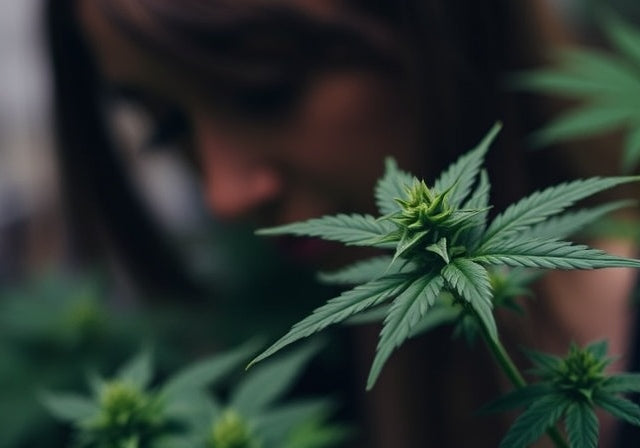
Is Cannabis Addictive? What You Need to Know
by Dexter Cann
·
Table of Contents
Cannabis, often hailed for its therapeutic and recreational benefits, has sparked countless debates regarding its safety and potential for addiction. As legalization spreads globally, understanding the science behind cannabis and its potential addictive properties is critical for both new and experienced users. In this article, we’ll explore whether cannabis is addictive, how it impacts the brain, and what you can do to consume it responsibly.
What Does It Mean to Be Addicted?
Addiction is commonly characterized by the inability to stop using a substance despite harmful consequences. It involves both physical and psychological dependence, where users feel compelled to continue consumption due to cravings, withdrawal symptoms, or emotional reliance.
Cannabis differs from substances like alcohol, nicotine, or opioids, which have a high potential for physical dependence. However, this doesn’t mean cannabis is completely free of addictive risks.
The Science of Cannabis and the Brain
Cannabis contains cannabinoids, the most notable being tetrahydrocannabinol (THC) and cannabidiol (CBD). THC is psychoactive and binds to cannabinoid receptors in the brain, influencing areas responsible for pleasure, memory, and decision-making.
Key Effects on the Brain:
-
Dopamine Release: THC triggers the release of dopamine, creating feelings of euphoria. Regular use can lead to a reduced natural dopamine response, potentially increasing dependency.
-
Memory and Learning: The hippocampus, crucial for memory and learning, is sensitive to THC, which can impair cognitive function during and after use.
-
Tolerance Development: Over time, frequent use can lead to tolerance, where higher doses are needed to achieve the same effects.
Is Cannabis Physically Addictive?
Unlike substances such as alcohol or heroin, cannabis has a lower risk of physical dependence. However, some users may experience withdrawal symptoms when discontinuing use after heavy or prolonged consumption. These symptoms, though typically mild, can include:
-
Irritability
-
Insomnia
-
Decreased appetite
-
Anxiety or restlessness
These withdrawal effects are primarily psychological and are part of what’s termed "Cannabis Use Disorder" (CUD).
What Is Cannabis Use Disorder?
The American Psychiatric Association recognizes Cannabis Use Disorder as a condition affecting approximately 9% of cannabis users. The likelihood of developing CUD increases with earlier onset of use, higher THC concentrations, and daily consumption.
Signs of Cannabis Use Disorder:
-
Inability to cut back or stop using cannabis
-
Continued use despite negative consequences
-
Spending excessive time obtaining, using, or recovering from cannabis
-
Neglecting responsibilities or relationships due to cannabis use
Risk Factors for Cannabis Addiction
Several factors contribute to the potential for cannabis addiction. Recognizing these can help mitigate risks:
-
Age of First Use: Starting cannabis use during adolescence, when the brain is still developing, increases the risk of dependency.
-
Frequency of Use: Regular, daily use is more likely to lead to dependency compared to occasional use.
-
Genetics: A family history of addiction can predispose individuals to substance use disorders.
-
Mental Health: People with anxiety, depression, or other mental health conditions may use cannabis as a coping mechanism, increasing the risk of misuse.
Responsible Cannabis Use: Tips for Avoiding Dependence
To enjoy cannabis safely and minimize the risk of addiction, consider these best practices:
-
Set Limits: Determine how often and how much cannabis you will consume. Stick to these guidelines to avoid overuse.
-
Opt for Lower THC Products: Choosing products with balanced THC and CBD ratios can reduce the psychoactive effects that contribute to dependency.
-
Take Breaks: Incorporate tolerance breaks to allow your body and brain to reset, preventing reliance on cannabis.
-
Stay Educated: Understand the products you’re using, including THC levels, strains, and delivery methods.
-
Focus on Intentional Use: Use cannabis for specific purposes, such as relaxation or symptom relief, rather than habitual or boredom-driven use.
The Role of Stash Boxes in Responsible Consumption
A high-quality stash box can play a pivotal role in promoting responsible cannabis use. Here’s how:
-
Controlled Storage: Stash boxes help regulate access to cannabis, preventing overuse.
-
Child Safety: Keep cannabis out of reach of children and pets with secure storage.
-
Preservation: Proper storage maintains the potency and quality of cannabis, reducing the likelihood of consuming more than intended due to degraded products.
-
Organization: Stash boxes can help users track and limit their inventory, promoting mindful consumption.
Seeking Help for Cannabis Dependence
If you or someone you know is struggling with cannabis addiction, resources are available:
-
Therapy: Cognitive-behavioral therapy (CBT) is highly effective in treating Cannabis Use Disorder.
-
Support Groups: Groups like Marijuana Anonymous provide community support and shared experiences.
-
Medical Assistance: Healthcare professionals can offer guidance and, if needed, recommend medications to manage withdrawal symptoms.
Final Thoughts
While cannabis has a lower risk of addiction compared to many other substances, it’s not entirely without risk. Understanding how cannabis affects the brain, recognizing the signs of dependency, and implementing responsible consumption practices can ensure a safe and enjoyable experience.
If you’re looking to take your cannabis storage to the next level, Cubbi’s stash boxes offer a stylish, secure, and functional solution. Not only do they help preserve your cannabis, but they also support responsible use through organized and safe storage.
Ready to elevate your cannabis experience?
Discover Cubbi’s premium stash boxes—the perfect blend of functionality and design. Shop now and find the ideal storage solution for your cannabis needs.